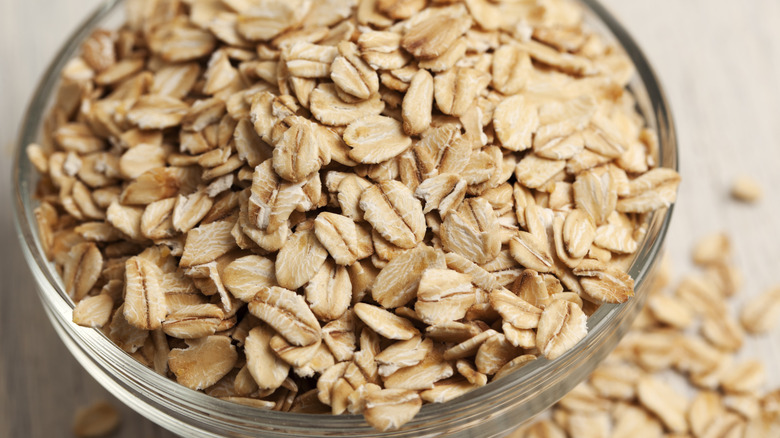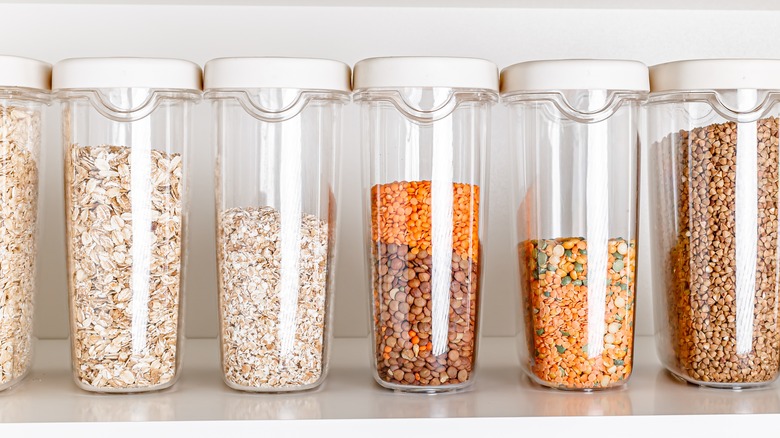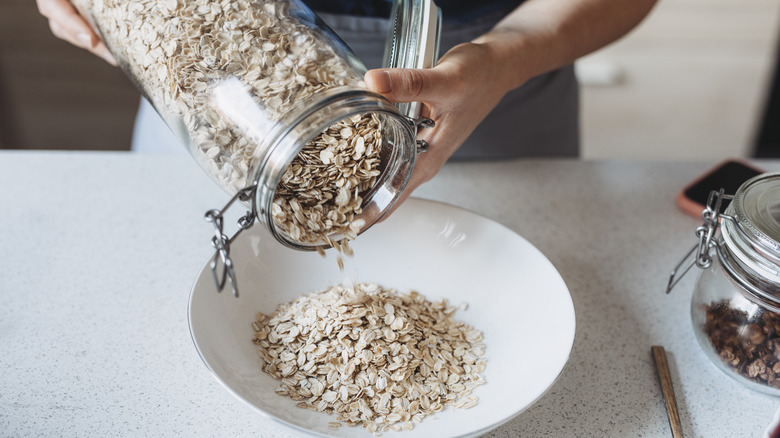Store Oats In The Freezer For Perpetually Fresh Breakfast
Looking at a package of oats — whether boxed, bagged, or in that familiar cardboard canister — it can be hard to believe that the little pieces inside were once part of a grasslike plant rooted in the soil on a farm. By the time oats arrive in home kitchens, they have gone through a complex process that transforms them from raw plant material into food that is ready to eat.
The processing and packaging of oats for sure prolongs their shelf-life, but it can only do so much to delay the inevitable. At some point, the food will expire. But, the best way to put off that expiration date? Store them in the freezer.
When stored in unopened packaging or transferred to an airtight container, oats will last in the freezer up to two years, often extending their best-by date by a year or more, while also making sure you're never without an easy, tasty breakfast.
Why oats won't last forever in the pantry
Oats, like all foods, are subject to spoilage based on a few key environmental factors, such as exposure to heat, humidity, air, light, bacteria, and pests. A freezer is the best option for limiting these factors, offering a dry, dark, cool, protected space away from contaminants and other food safety threats. But, don't worry if your oats are currently stored in the pantry — most can last in a kitchen cupboard for about a year, though they may expire sooner depending on how they were originally processed.
The oats that you find at your local grocery store have likely undergone a process known as "steaming" where they are heated to inactivate enzymes that cause rancidity. It is possible, however, to find "un-steamed" (or "unstabilized") oats, which have not been treated with heat, meaning that they will last just three to four months in the pantry before the lipids inside begin to spoil. Steamed or un-steamed, the freezer is the ideal place for storing your oats if you don't plan on eating them soon.
Assessing your oats and saving your favorite breakfast foods
When it comes to food safety, raw oats rank low on the list of high-risk food products, but there are a few things to look out for when assessing whether your oats are still good. The presence of pests or mold are the most obvious indicators that they're no longer safe to consume, but you should also consider tossing them if they have developed an odd smell or have changed color. Besides opting to keep your oats in the freezer, it's also crucial that you move them from their original packaging into a more secure sealed glass or plastic container.
As with raw oats, you may also want to consider storing other oat products, such as oat milk and oat flour, in the freezer if you need to buy yourself some extra time before using them. And while you are organizing your breakfast ingredients, if you like something crunchy on top of your oatmeal, it's worth noting that you should keep your nuts frozen, too, for all the same reasons.



